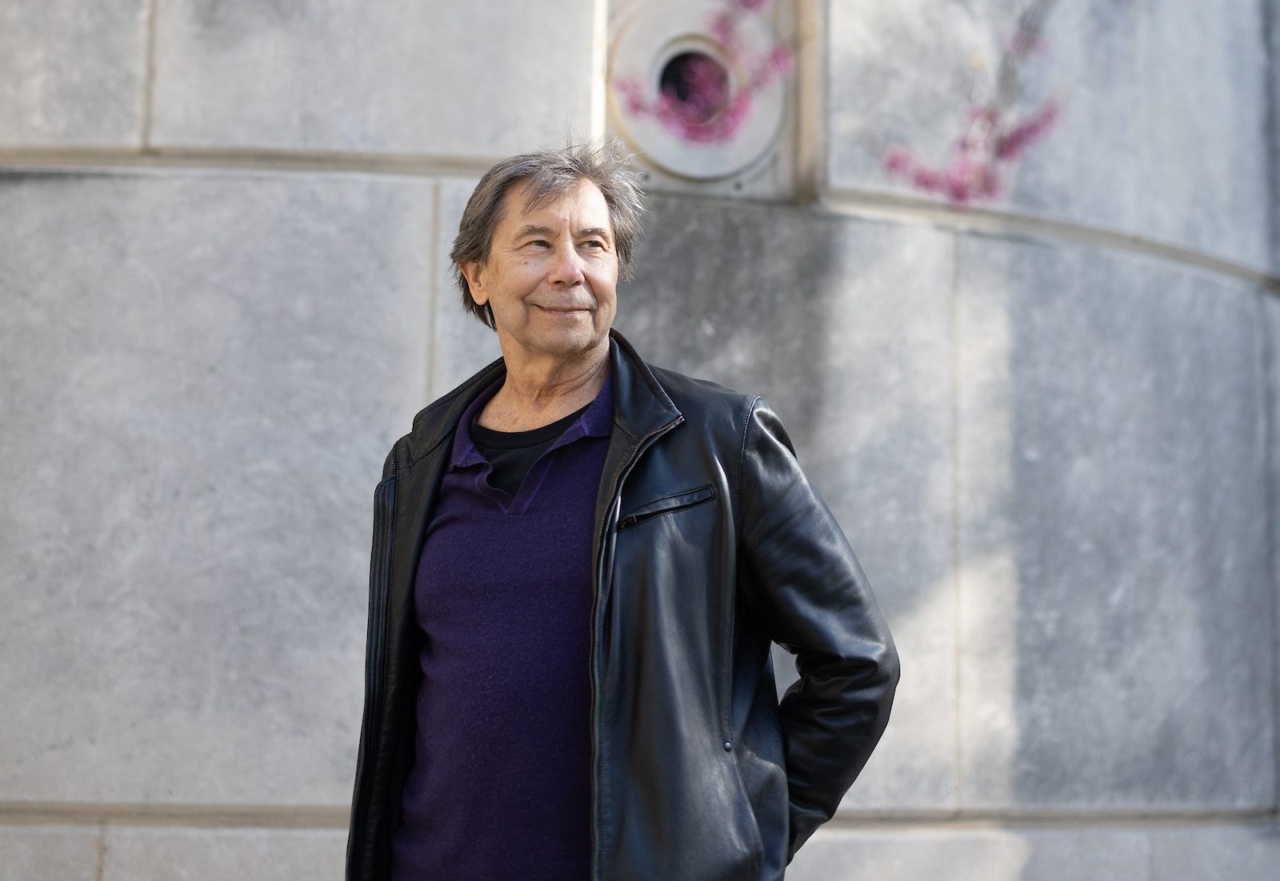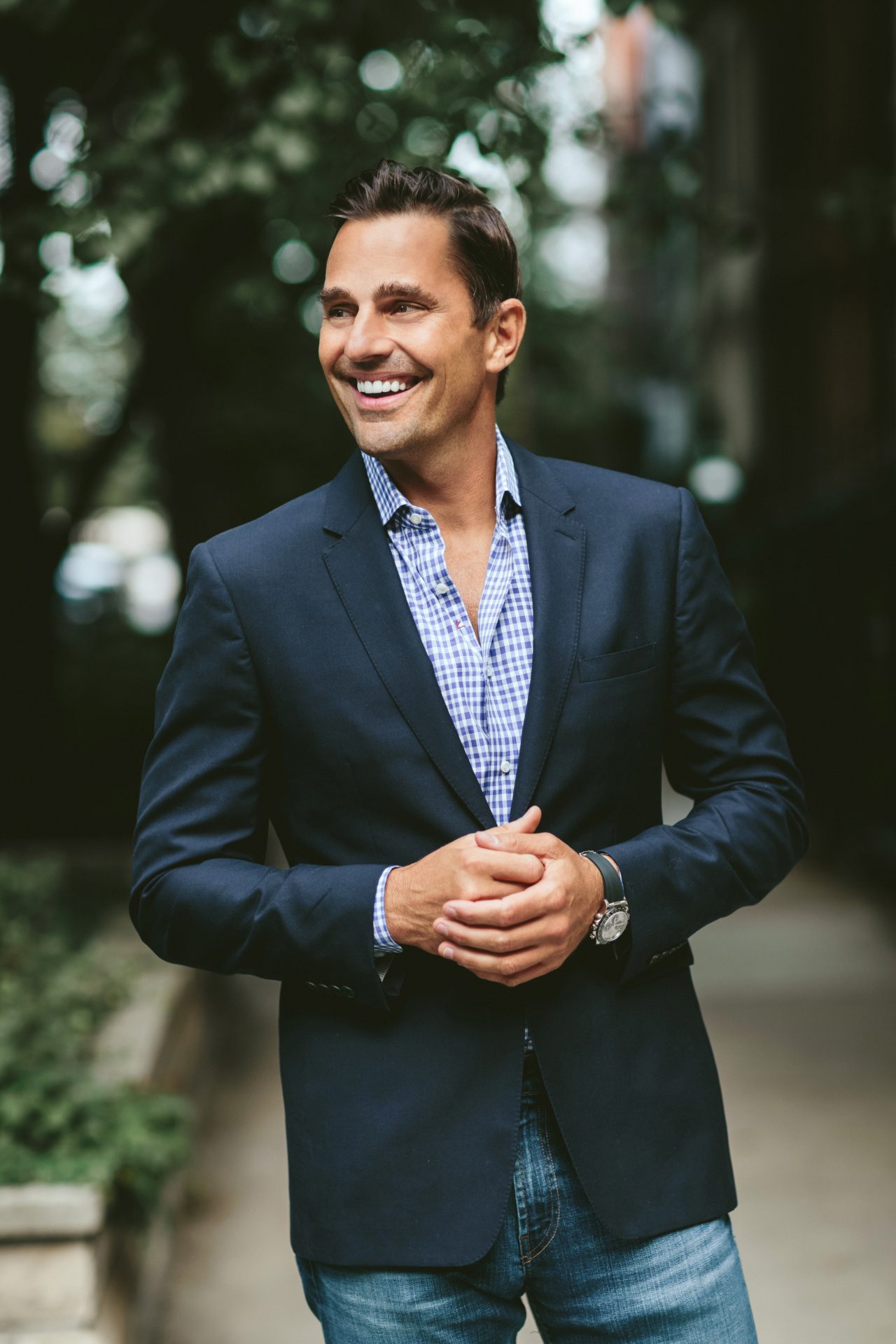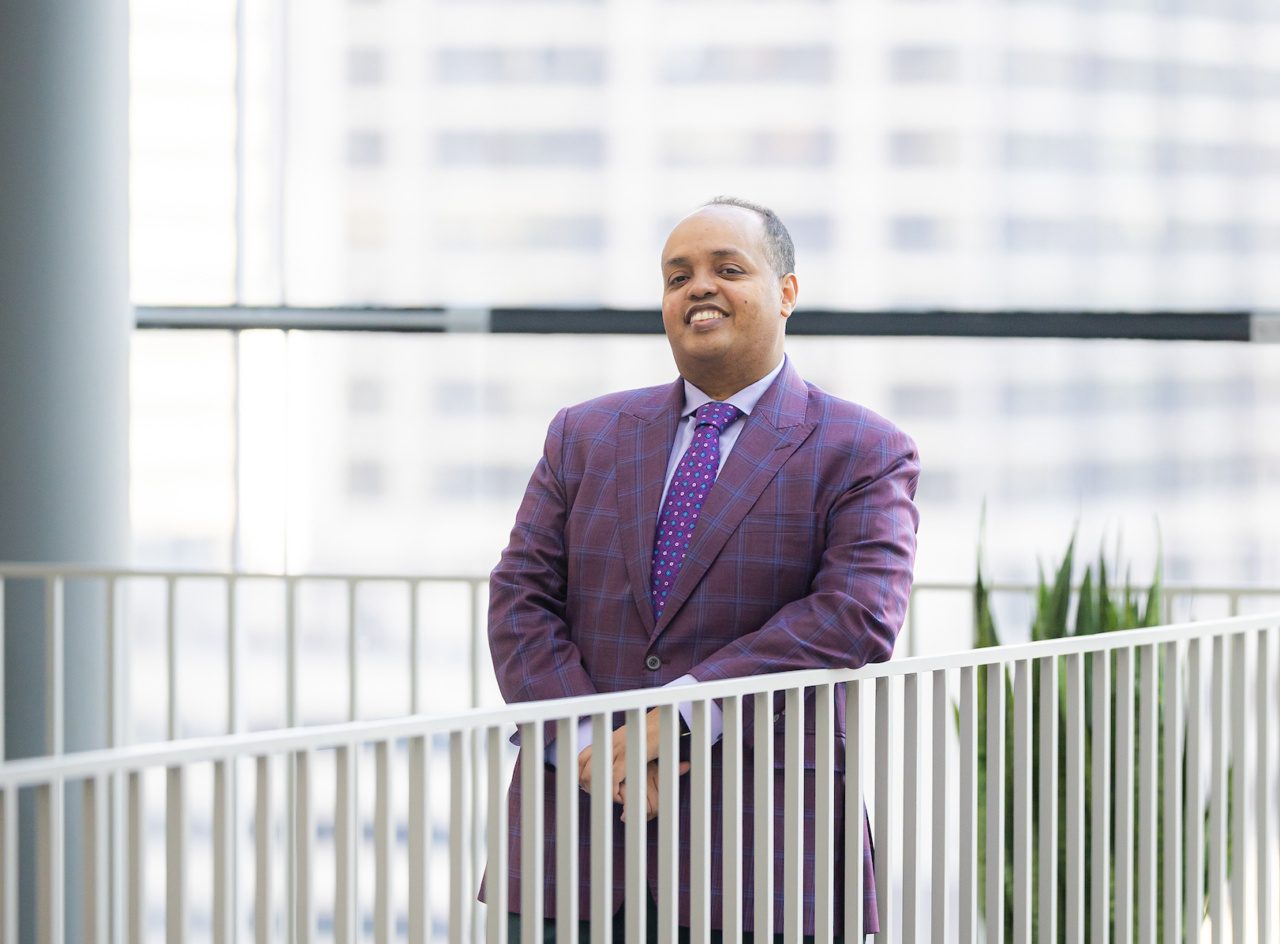The job creators
Loyolans use social enterprises to curb unemployment among vulnerable populations.
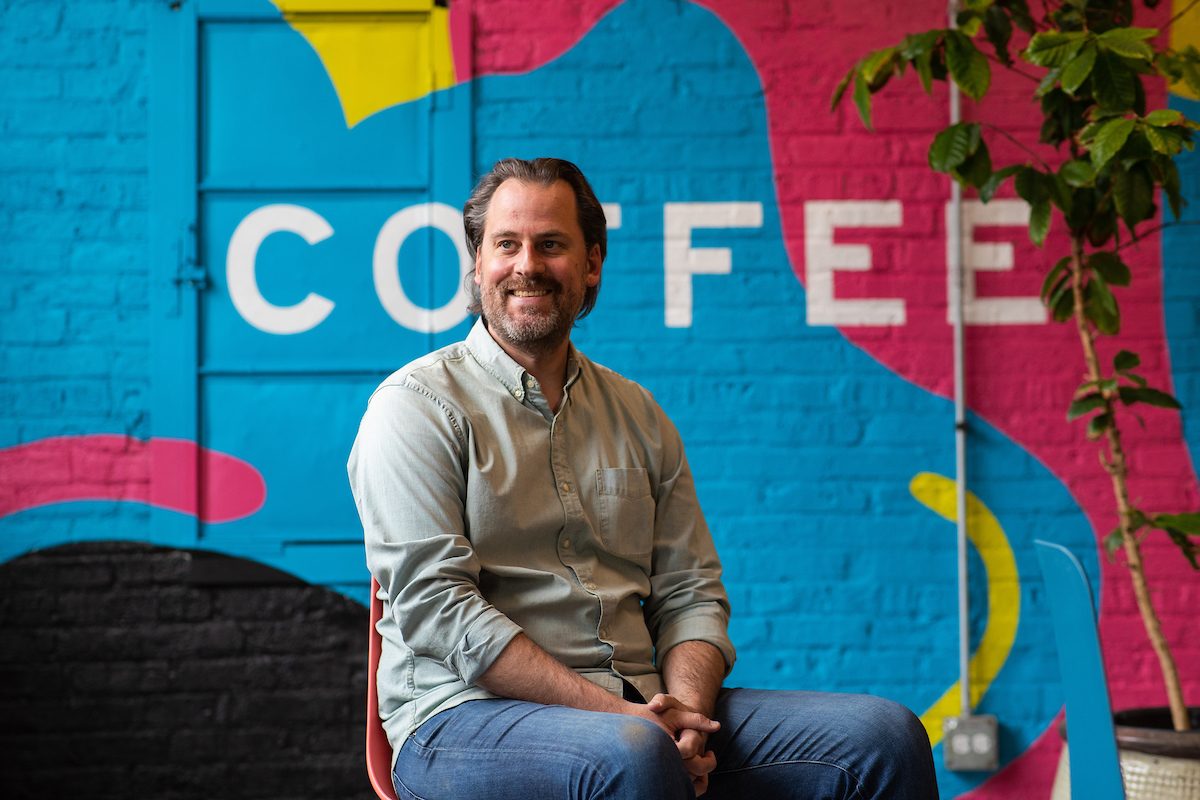
Branden Marty, MBA ’22, started Veteran Roasters, a wholesale coffee company, without knowing anything about the coffee business. But he did know a lot about the special needs of veterans. After 13 years as a U.S. Navy helicopter pilot and two years running the Navy’s wounded warriors program at the Great Lakes Naval Station, Marty knew veterans needed a job with a decent wage after their service. But more than that, they needed support, community, and to feel pride in their work.
“I think a lot of us [veterans] struggle coming out [of the military] because we’re really passionate about service and about our military jobs and the team aspect of it,” Marty says. “We look for the same thing when we come out, and a lot of us struggle to find that.”
With that in mind, Marty founded Veteran Roasters in 2017 as a social enterprise business—one that is cause-driven and employs commercial strategies to bolster the triple-bottom line of financial, social, and environmental impact. A well-known social enterprise is Goodwill, with its motto of “a hand up, not a hand out,” founded at the beginning of the 20th century with the aim of training and employing low-income people who traditionally had difficulty finding work. Social enterprises have increased in popularity in recent years (think Ben & Jerry’s, TOMS Shoes), and Marty’s desire to not only employ but empower veterans aligned perfectly with this model.
“The product that we’re selling isn’t just coffee,” Marty says. “It’s actually the opportunity to help be a part of change in someone that serves our country in uniform.”
Meeting a need
Veteran Roasters led Marty to enroll this past year as a Baumhart Scholar, a highly selective, cohort-based MBA within Loyola’s Quinlan School of Business, to help grow and develop his business. The program’s mission is to teach business leaders to operate at the intersection of profit and purpose. “I consider Loyola as a leader in social impact in the business world,” he says. “I wanted to be part of that, and I wanted Veteran Roasters to be part of that.”
Marty is in good company as a Loyolan working to employ—and inspire—vulnerable people through the social enterprise business model. Caitlin Botsios (BA ’12) and Sean Connolly (BA’12, MBA ’17) co-founded Helix in April 2019 with the mission to “create a youth-driven ecosystem that is open and accessible to all,” rooting “all of our work in real world projects that empower and engage youth of all ages, educators, and adults.” Like Marty’s dedication to building up veterans, Botsios and Connolly aim to do the same with youth.
The pair focused on youth ages 16-24 because it represents the age group with the highest unemployment in the country, according to figures from the U.S. Bureau of Labor. (COVID-19 would make it worse. Last year, Illinois teens ages 16-19 were losing jobs at a higher rate than anywhere else in the Midwest, which left the state with the lowest youth employment rate in the region and 10th lowest nationwide.)
I think a lot of us [veterans] struggle coming out [of the military] because we're really passionate about service and about our military jobs and the team aspect of it. We look for the same thing when we come out, and a lot of us struggle to find that.
— Branden Marty MBA , Baumhart Scholar
Veterans, as Marty saw, also make up an unemployed niche in need. The unemployment rate for vets was 6.5 percent in 2020, meaning 581,000 went without jobs, according to the U.S. Bureau of Labor Statistics. Those who can’t find work often can’t afford housing, either. (The Department of Veterans Affairs estimates that 107,000 veterans are homeless on any given night.)
Those veterans who do find work often take jobs for which they’re overqualified when transitioning out of the military, especially when they need immediate income to support families and can’t afford an extended job search. As a result, nearly a third of veterans are underemployed, a rate 15.6 percent higher than non-veterans in the work force, as reported in a recent study by ZipRecruiter.
As a veteran himself, Marty understood these particular challenges, especially the transitional anxiety. He also saw the value of veterans in the workforce as individuals who knew how to accomplish a defined mission. Simply giving veterans a job was not enough, which is why he chose to create Veteran Roasters as a social enterprise with added layers of support for his employees.
Botsios and Connolly saw young people in the same light. After 21 months of planning, they opened the doors of Helix Cafe in Chicago’s Edgewater neighborhood, less than a mile from Loyola’s Lake Shore Campus. The youth they hire not only make coffee drinks, they also write marketing plans, analyze data, and plan menus. Helix started with coffee, but it was about much more than the beverage. “We were not so passionate about coffee as providing youth social agency and opportunities,” says Connolly. “All of our skill sets are transferable. We’re not trying to train the next generation of baristas, but to train them for a career path.”
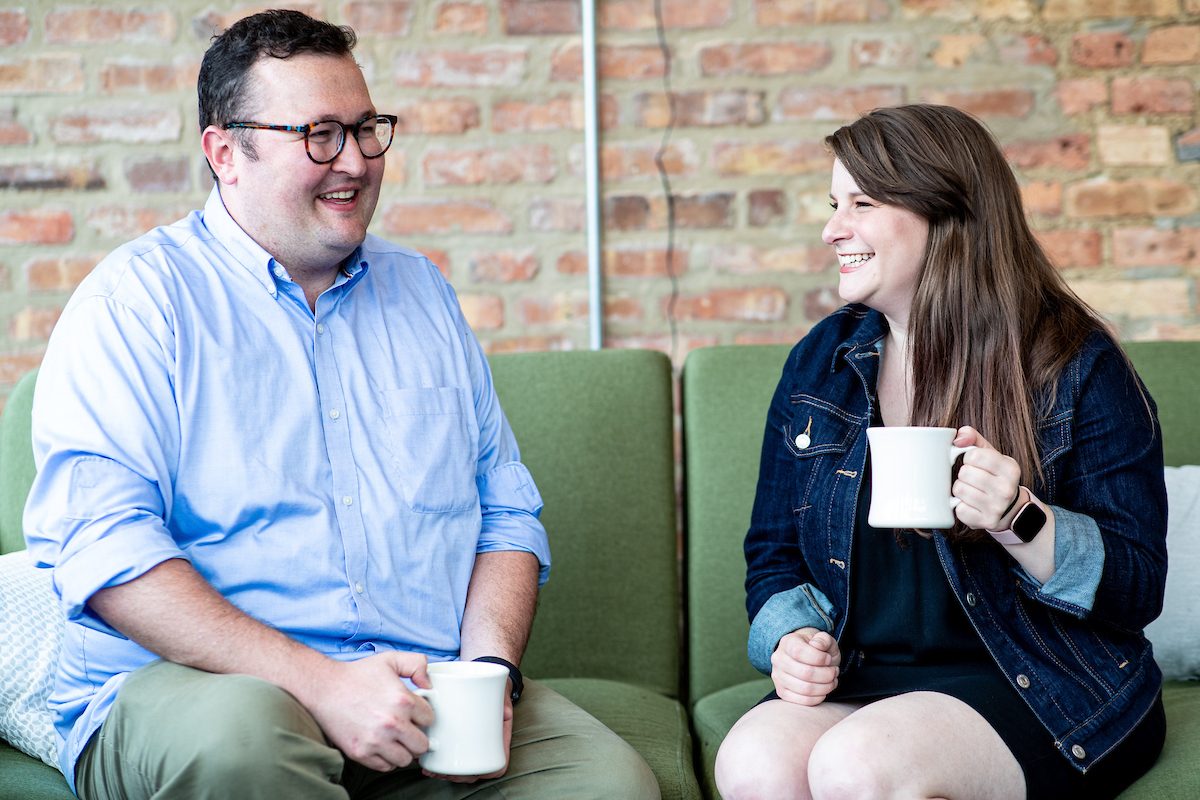
Making an Impact
Both Helix and Veteran Roasters have seen the impact of running their businesses with a social impact bottom line in addition to a financial one. At present, Helix has 26 paid interns plus 10 cafe employees earning minimum wage ($13.50 an hour) that Botsios and Connolly plan to increase to $14 in July. Since their beginning, they have had more than 200 young people work in the cafe, conducted more than 50 workshops for youth, and hosted over a 100 community events. Last year alone, they engaged more than 750 students from kindergarten to college in entrepreneurship and career readiness programs and supported 65 teachers through professional development.
Over the past four years, Veteran Roasters has employed a dozen veterans, and in 2019 had ramped up more than $600,000 in sales. The current staff fills orders, roasts the beans, and interacts with suppliers. They earn $17 an hour plus unconventional benefits. For instance, Marty has partnered with shelters and veteran housing services to find past and present employees housing. He has set up a nonprofit (Rags of Honor) to raise $30,000 in grants to furnish apartments, buy clothes, cover child care costs, pay for car repairs, and provide rent assistance. The numbers he’s served are small, but the reach into their lives is deep.
With Helix, Botsios and Connolly believe they have built a model harnessing the power of small businesses to reduce unemployment. In addition to being rooted in local neighborhoods, they collectively have global reach. “Small businesses employ more people [as a whole in total numbers] than anyone else,” says Botsios. “If you could activate small businesses to be the solution to unemployment, there’s a lot there to be tapped.”
Veterans aren’t charity cases. They’re assets in our communities. What we’re doing at Veteran Roasters is polishing the asset.
— Branden Marty , Baumhart Scholar
Helix began as limited liability company but this past year, as the pandemic slowed business at the cafe, Botsios and Connolly converted their venture to a 501(c)(3), which allows them to solicit grants and donations. That now accounts for 30 percent of their revenue, with income from the cafe, career training, and educational programs making up the rest. But the shift hasn’t changed how the founders run Helix. “Caitlin and I agree in the community-based business model,” says Connolly. “You can apply big thinking to a nonprofit operation.”
The Helix partnership began at Loyola; so did its formation. The two say Loyola laid the foundation for their social enterprise with cura personalis, forging the idea that Helix is about more than minting baristas. “We want to develop the whole person,” Botsios says.
Marty agrees: “We have revenue goals because we have to pay the bills,” he says. “But equally, or and a lot of times, greater is the change that we’re having in the folks that we hire.”
Read more stories from the Quinlan School of Business.
